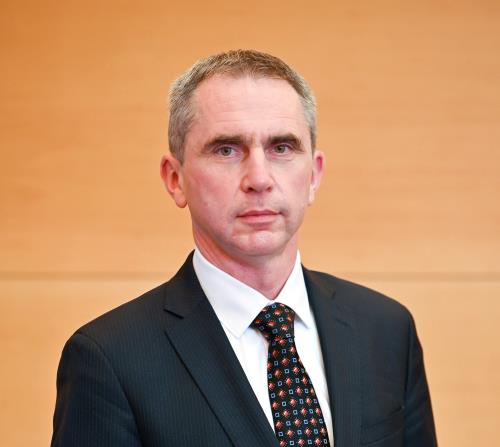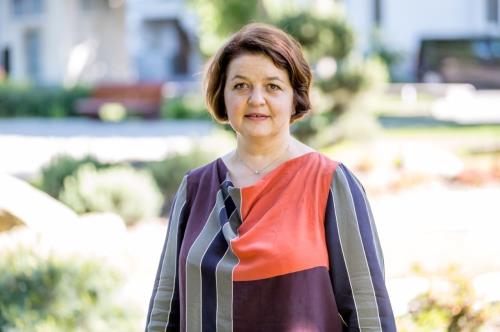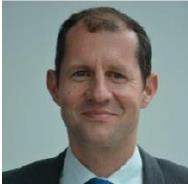Towards a common approach to countering disinformation online
Lithuania, Ukraine, Poland, Latvia, Japan, Delegation of the European Union in Geneva
Session 404
Introduction and context
Disinformation has been broadly recognized among major modern threats. It affects societies and the functioning of democracies all over the world and, with the profusion of communication channels and advances in digital technology, it spreads rapidly and threatens political engagement, deepens distrust towards democratic institutions and processes, risks increased polarization in societies and limits freedom of individuals to seek, receive and impart information, including in times of emergency, crisis and armed conflict, when such information is vital.
From internet shutdowns to disinformation campaigns, digital technology is often discriminatory and detrimental to human rights. Fabricated or false information at times is blended with verified facts, thus further enhancing its undermining impact. Information manipulation distorts civic discourse and the integrity of the information environment through the inauthentic or manipulated distribution of content (via fake accounts, inauthentic outreach, etc.) or the suppression of alternative voices. The spread of disinformation, including on the Internet, can be deliberately designed to incite violence, hatred, discrimination or hostility both among nations and within societies.
Recent progress in the UN context
The damaging effect of disinformation has become especially visible since the beginning of the COVID-19 pandemic. In response, the UN launched in May 2020 the “Verified” initiative aimed at tackling the growing scourge of COVID-19 misinformation by increasing the volume and reach of trusted, accurate information. The situation further aggravated with attempts to silence the sources of objective information about Russia’s war in Ukraine and instead launching a massive disinformation campaign in Russia, Belarus and globally.
In 2020, International Telecommunications Union published a research “Balancing Act: Countering Digital Disinformation While Respecting Freedom of Expression” on how States, companies, institutions and organisations around the world are responding to disinformation, which concluded that disinformation cannot be addressed in the absence of freedom of expression concerns and underlined the importance of access to reliable and trustworthy information to counter disinformation.
In June 2021, the UN Special Rapporteur on the promotion and protection of the right to freedom of opinion and expression Irene Khan presented her report on Disinformation and freedom of opinion and expression to the UN Human Rights Council. The report examined the threats posed by disinformation to human rights, democratic institutions and development processes.
In December 2021, the UN General Assembly adopted a resolution 76/227 on “Countering disinformation and promotion and protection of human rights and fundamental freedoms”.
Most recently, in March 2022, the issue of role of states in countering the negative impact of disinformation on the enjoyment and realization of human rights was addressed at the UN Human Rights Council by consensual adoption of a resolution 49/21.
Objective of the event
The event will aim to identify points of convergence, best practices and possible ways forward for an increased synergy between UN system, states and other relevant stakeholders in countering disinformation online.
Guiding questions
- How could we better ensure that the efforts to counter disinformation incorporate a human rights-based approach?
- How the digital standard-setting can contribute to the facts-based online environment?
- How can the international community contribute to advancing the common approach to countering disinformation online?
___________________________
After the event the Permanent Mission of Lithuania will host a coffee break.

After law studies focusing on international law in Lithuania and the UK Mr. Staniulis joined the Lithuanian Diplomatic Service in 1993 and served in different positions at the MFA, as well as in the Consulate General in New York, the Permanent Mission in Geneva, and the Permanent Representation to the European Union. He also was seconded to the OSCE Mission to Georgia.
In January 2022 Mr. Staniulis took up his duties as Ambassador Extraordinary and Plenipotentiary and Permanent Representative at the Permanent Mission of the Republic of Lithuania to the United Nations Office and other international organizations in Geneva.

In 1996 Ambassador Filipenko joined the Diplomatic Service of Ukraine, where she served in various positions at the Ministry of Foreign Affairs as well as abroad – in New York, Vienna and Belgrade.
She is a graduate of Kyiv National Taras Shevchenko University, holds a postgraduate certificate of Oxford University.
.jpg?maxwidth=500)
Eglė Markevičiūtė is a Vice-Minister of the Economy and Innovation of the Republic of Lithuania from December 2020. Before that she was a lobbyist, had her own business, was a Chief Official of the Economics and Investment at the Vilnius City Municipality Administration.
She is a graduate from Vilnius University, where she completed bachelor and masters studies with a focus on Political Science.
Co-author of the book ‘Lithuania 2120’.

Since January 2016, Peggy Hicks has served as director of the Thematic Engagement, Special Procedures and Right to Development Division of the UN Human Rights Office (OHCHR). She provides strategic direction to the UN Human Rights Office's work on a broad range of pressing human rights issues, including human rights in the digital age. From 2005 to 2015, she was global advocacy director at Human Rights Watch, where she was responsible for managing Human Rights Watch's advocacy team and providing direction to its advocacy worldwide. Ms. Hicks previously served as the director of the Office of Returns and Communities in the UN mission in Kosovo and as Deputy High Representative for Human Rights in Bosnia and Herzegovina. She has also worked as the Director of Programs for the International Human Rights Law Group, and as clinical professor of human rights and refugee law at the University of Minnesota Law School. Ms. Hicks is a graduate of Columbia Law School and the University of Michigan.

Lutz Güllner works in the European External Action Service, where he is Head of Division for Strategic Communications and Information Analysis. He leads a team of about 35 persons dealing with issues related to disinformation and foreign manipulative interference. In his work, he focuses on addressing disinformation threats for the EU and for the EU's neighbourhood region. Prior to his current position he served as Head of the EEAS's foreign and security policy communication team and as Head of the European Commission's Directorate General for Trade's communication team. He was also Deputy Head of the Trade Strategy Unit and responsible for the coordination of EU-US trade and economic relations. In 2009 and 2010, Lutz Güllner was spokesperson for the High Representative of the European Union for Foreign Affairs and Security Policy, Catherine Ashton. He was also the Commission's spokesperson for trade policy. In previous positions, he was in charge of economic relations between the EU and Russia. He studied political science and international relations at the Free University of Berlin and the Institut d'Etudes Politiques (Sciences Po) in Paris. He is teaching trade policy and EU foreign affairs at the post-graduate studies programme for European studies in Berlin.

Paula Gori is the Secretary-General and Coordinator of European Digital Media Observatory. She joined the School of Transnational Governance at the European University Institute in 2017 where she is a member of the management team. Prior she was the Coordinator of the Florence School of Regulation – Communications and Media, which offers training, policy and research activities on electronic communications regulation and competition and she collaborated with the Centre for Media Pluralism and Media Freedom, which she coordinated during the initial set-up phase back in 2012. She was for several years the Scientific Coordinator of the Annual Conference on Postal and Delivery Economics and she is one of the authors of the report for the European Commission on European Union competences in respect of media pluralism and media freedom. Paula has a legal background and is a qualified civil mediator.
-
 C3. Access to information and knowledge
C3. Access to information and knowledge
-
 C4. Capacity building
C4. Capacity building
-
 C6. Enabling environment
C6. Enabling environment
-
 C8. Cultural diversity and identity, linguistic diversity and local content
C8. Cultural diversity and identity, linguistic diversity and local content
-
 C9. Media
C9. Media
-
 C11. International and regional cooperation
C11. International and regional cooperation
The event aims to identify points of convergence, best practices and possible ways forward for an increased synergy between UN system, states and other relevant stakeholders in countering disinformation online.
-
 Goal 9: Build resilient infrastructure, promote sustainable industrialization and foster innovation
Goal 9: Build resilient infrastructure, promote sustainable industrialization and foster innovation
-
 Goal 16: Promote just, peaceful and inclusive societies
Goal 16: Promote just, peaceful and inclusive societies
Disinformation affects societies and the functioning of democracies all over the world and, with the profusion of communication channels and advances in digital technology, it spreads rapidly and threatens political engagement, deepens distrust towards democratic institutions and processes, risks increased polarization in societies and limits freedom of individuals to seek, receive and impart information, including in times of emergency, crisis and armed conflict, when such information is vital. Therefore, countering disinformation is key element in promoting just, peaceful and inclusive societies.